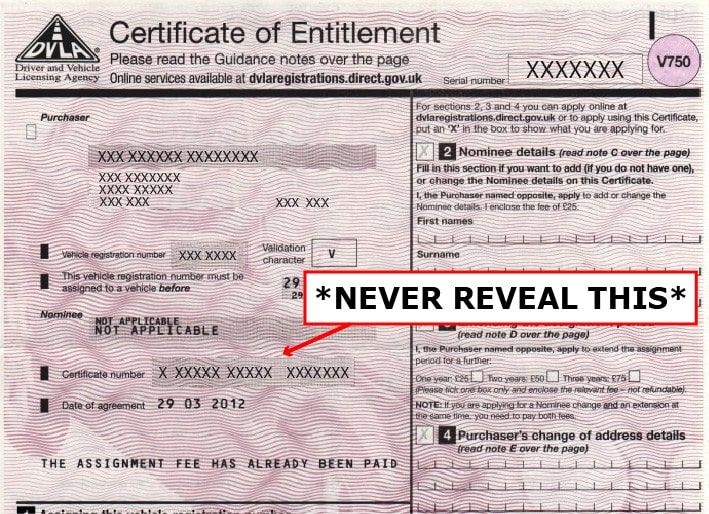Industry experts are cautioning vehicle owners against engaging in transactions involving personalised number plates on social media platforms due to a growing prevalence of fraudulent activities.
As the number of deceptive cases continues to rise, motorists who attempt to buy or sell their custom UK private plates on social media buying and selling platforms are at heightened risk of financial loss, amounting to hundreds or even thousands of pounds.
Plates4Less, a division of VRM Swansea, has unveiled the top three scams and an invaluable guide aimed at empowering vehicle owners to steer clear of becoming victims themselves.
The scams can be categorised into three types:
- False Promises: An unsuspecting buyer posts a request for a particular number plate. A scammer replies with an enticing offer, and the transaction is conducted privately. Regrettably, the buyer never receives the promised number plate and ends up losing their money.
- Certificate Con: Fraudsters masquerading as buyers persuade sellers to transmit their certificate of ownership before any payment is exchanged, only to vanish without completing the sale.
- Fake Listings: Scammers post items for sale that they do not legitimately own, often employing another individual’s entitlement copy as false proof of ownership.
Plates4Less, headquartered in Swansea, specialises in facilitating the purchase and sale of private number plates across the UK and Northern Ireland.
Antony Clark, Marketing Manager at Plates4Less, emphasised, “Instances akin to these are becoming increasingly common, and this trend appears to be on the rise. Buyers should exercise caution by meticulously confirming that the seller is the legitimate owner of the registration mark before committing any funds.”
“We would strongly recommend attempting to conduct the transaction in person, whenever feasible. If an offer seems too good to be true, it probably is,” he added.
This surge in fraudulent cases can, in part, be attributed to shifts in government procedures. These changes enable any individual possessing a valid certificate number to promptly assign that registration mark to their vehicle. This detachment of the applicant from the registration mark exposes those who unwittingly post their certificate online or fall victim to email breaches to significant risks, as scammers can exploit or sell the information.
Many victims of private number plate fraud often discover the crime after a substantial period when they attempt to utilise the registration mark, only to learn that it has been reassigned elsewhere.
Plates4Less has provided the following protective guidelines for private number plate owners:
- Never share images of certificates online.
- Store physical documents securely and verify their validity every six months.
- Monitor email accounts to prevent unauthorized access by scammers to DVLA online accounts where plate details are stored.
- Opt for a reputable business when selling or valuing a number plate, and scrutinise their reviews on third-party platforms.
Antony reiterated, “To ensure the safety of both parties involved, we advocate for the use of trustworthy, fully registered intermediaries such as Plates4Less. Our services offer a secure and enjoyable experience for both buyers and sellers. Transparency and mutual satisfaction are guaranteed, ensuring that buyers receive precisely what they are paying for at the correct price.”






